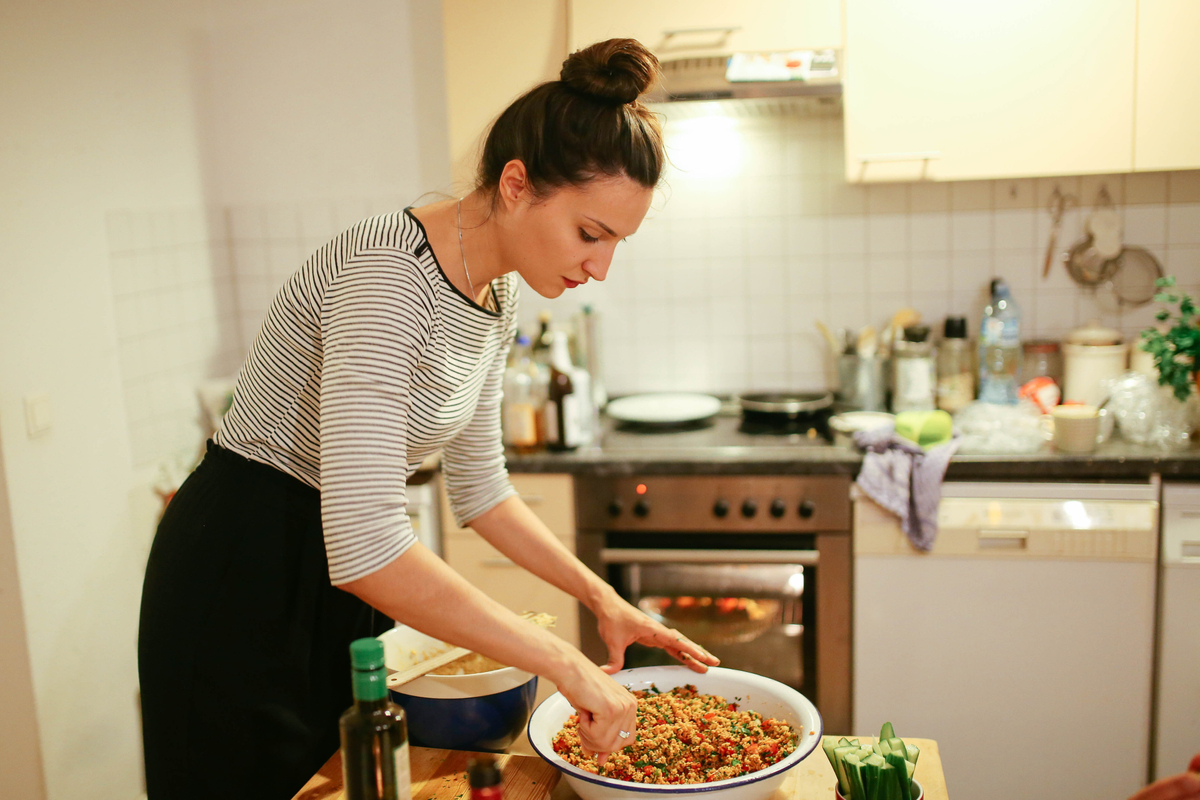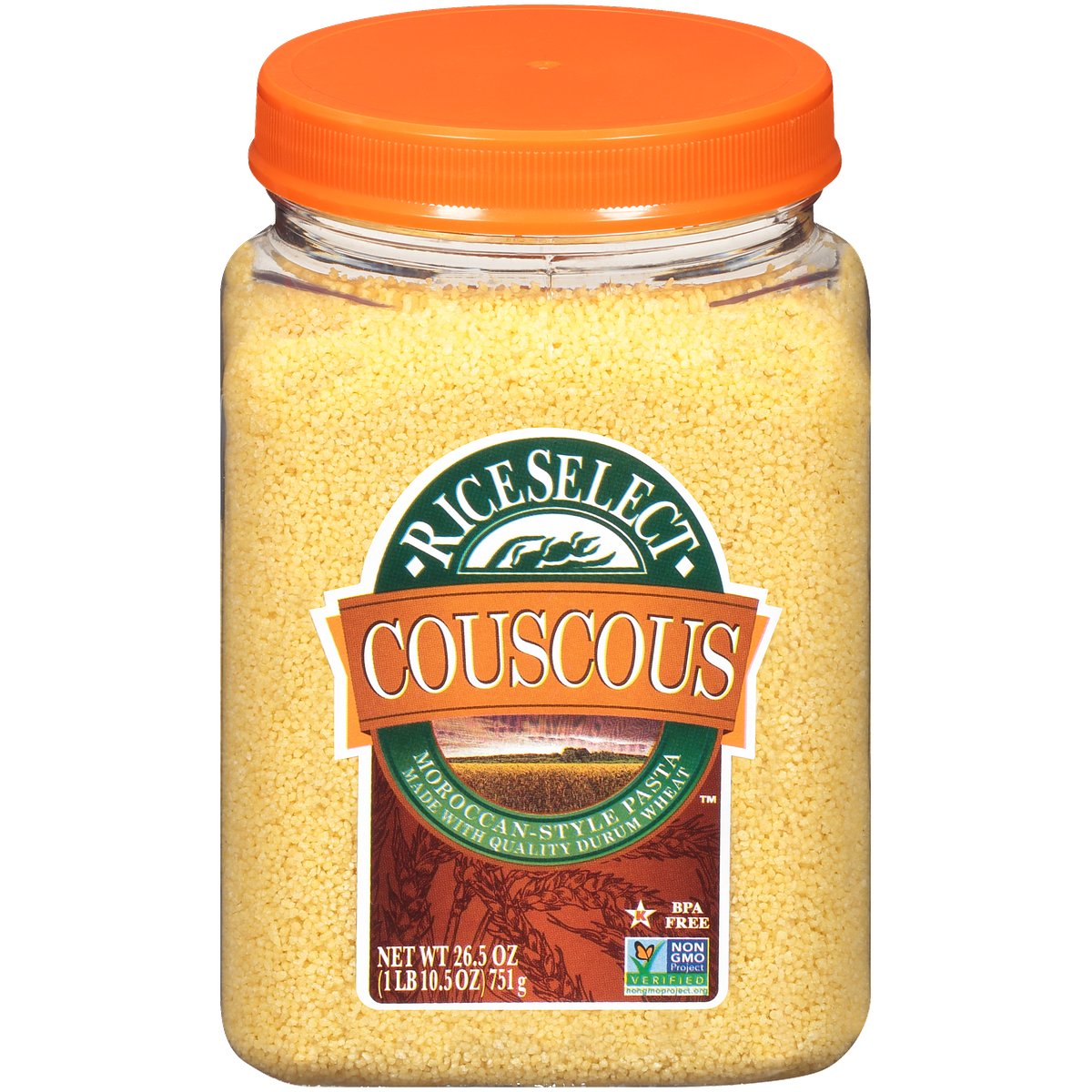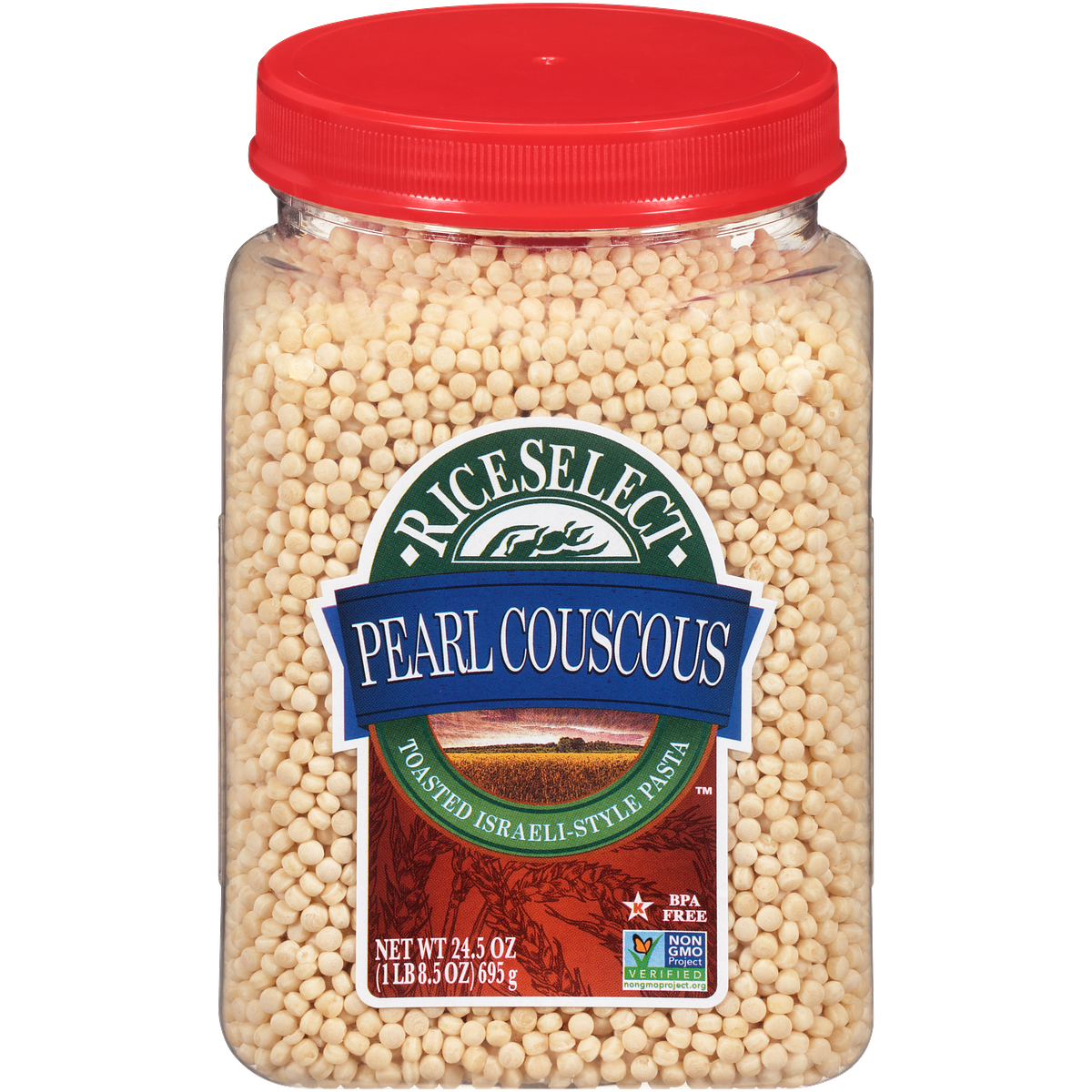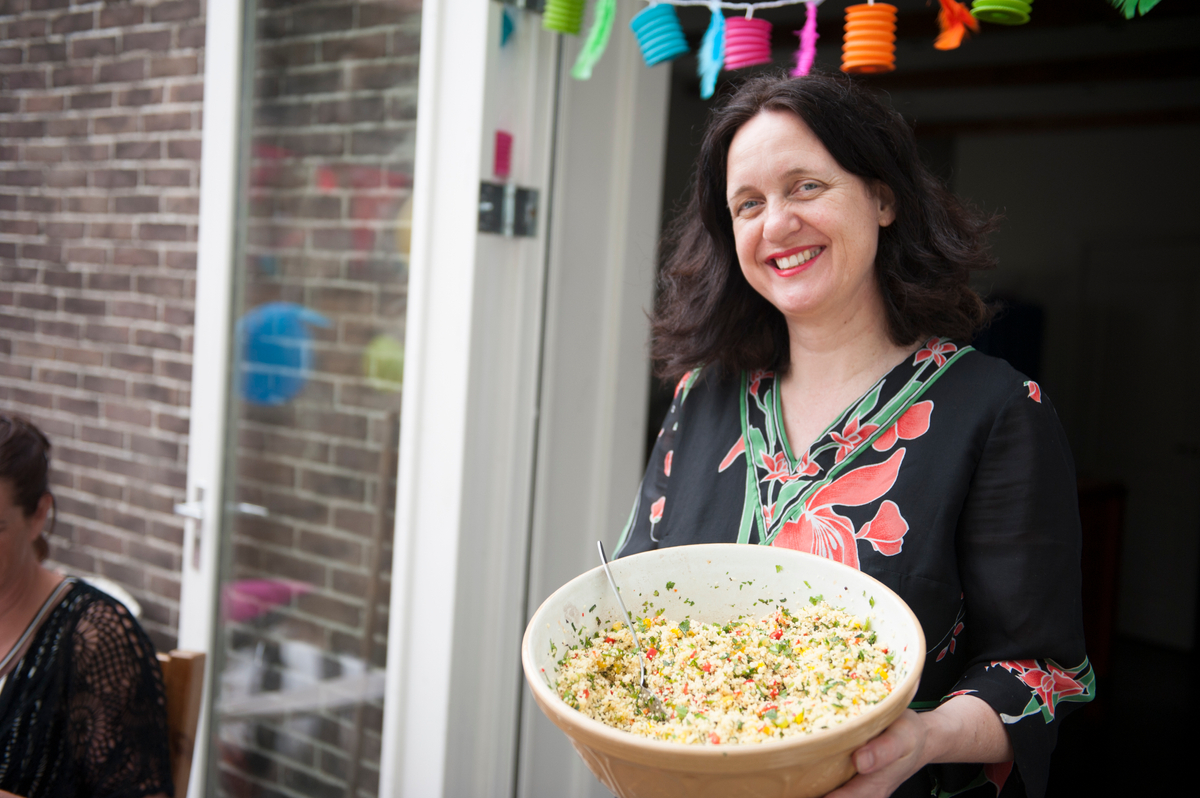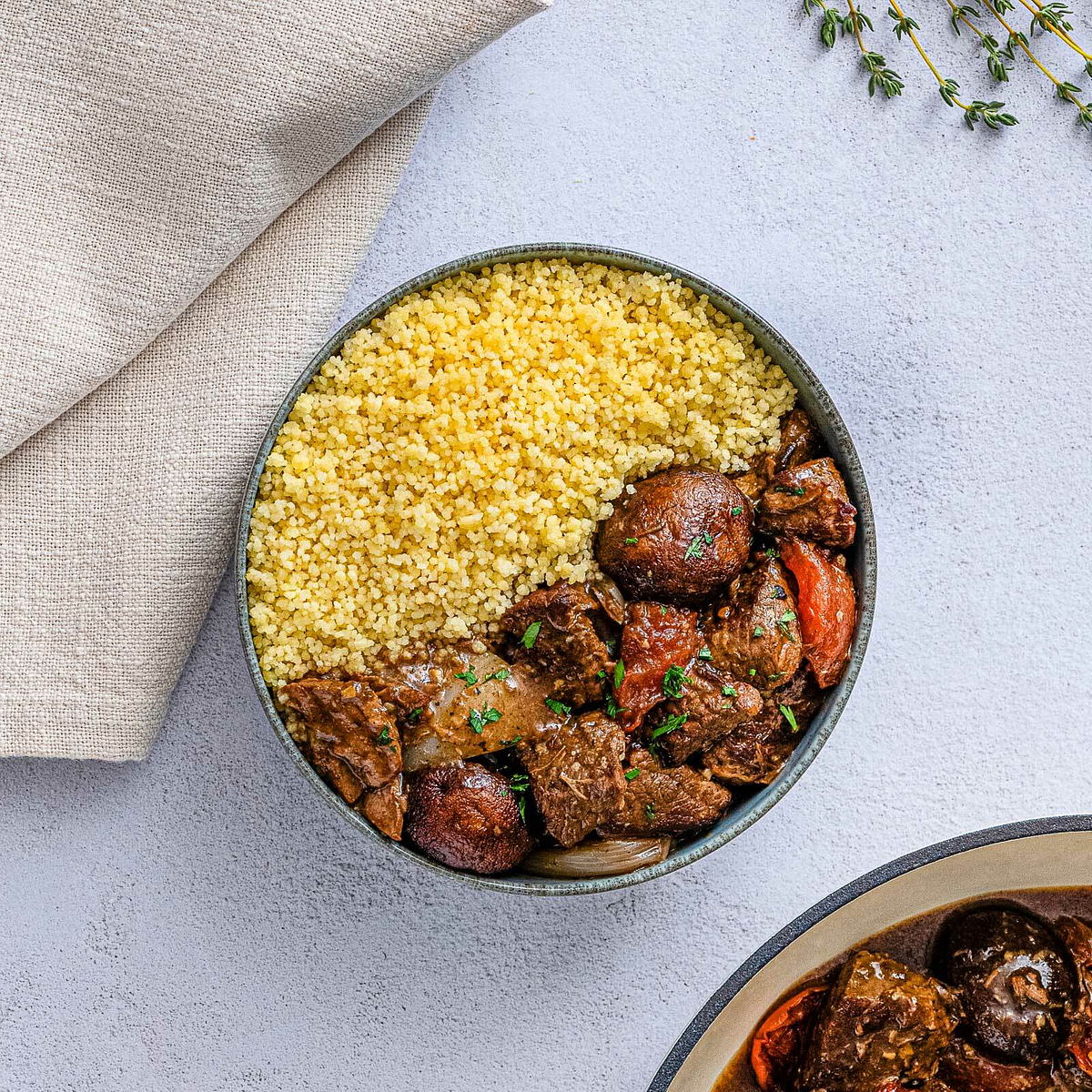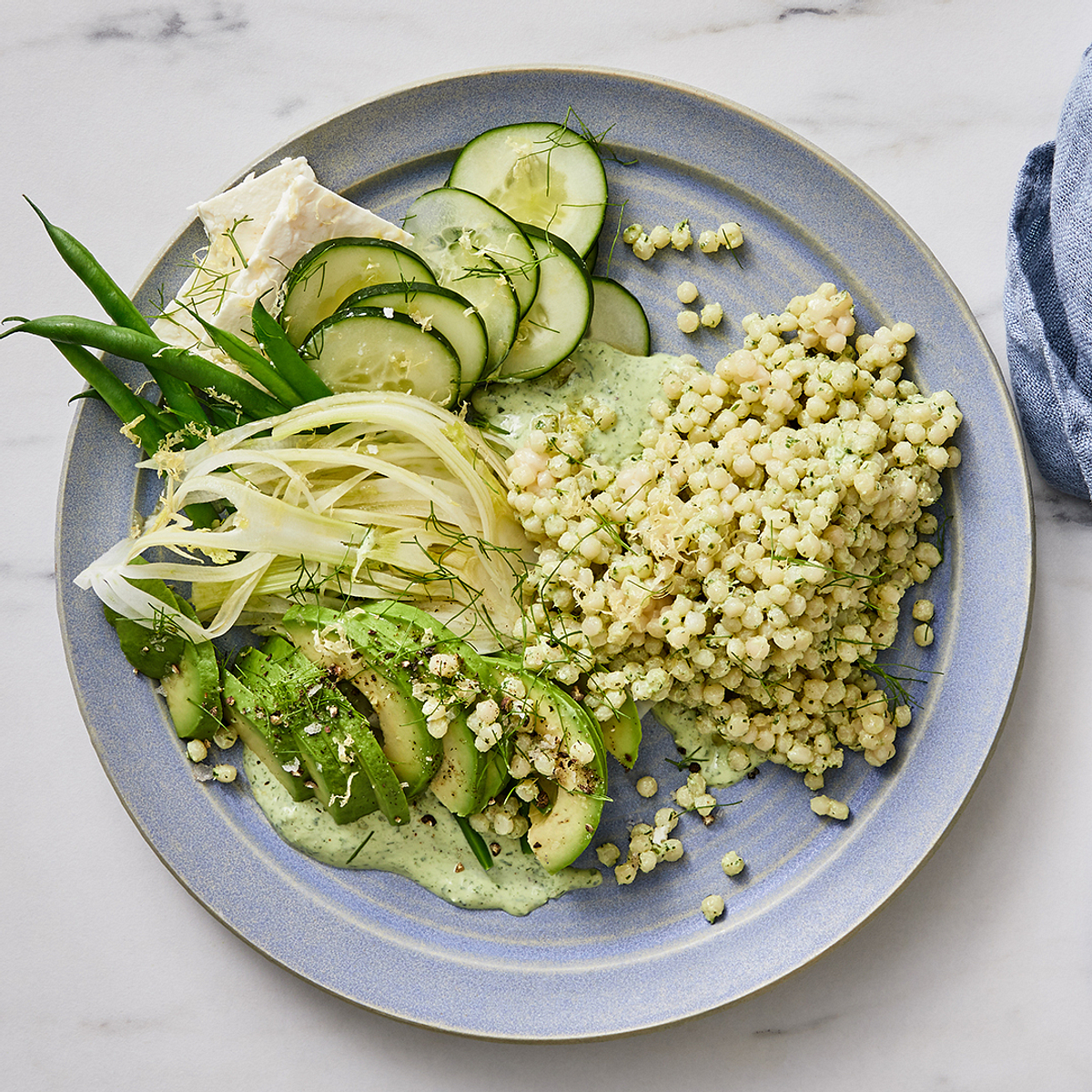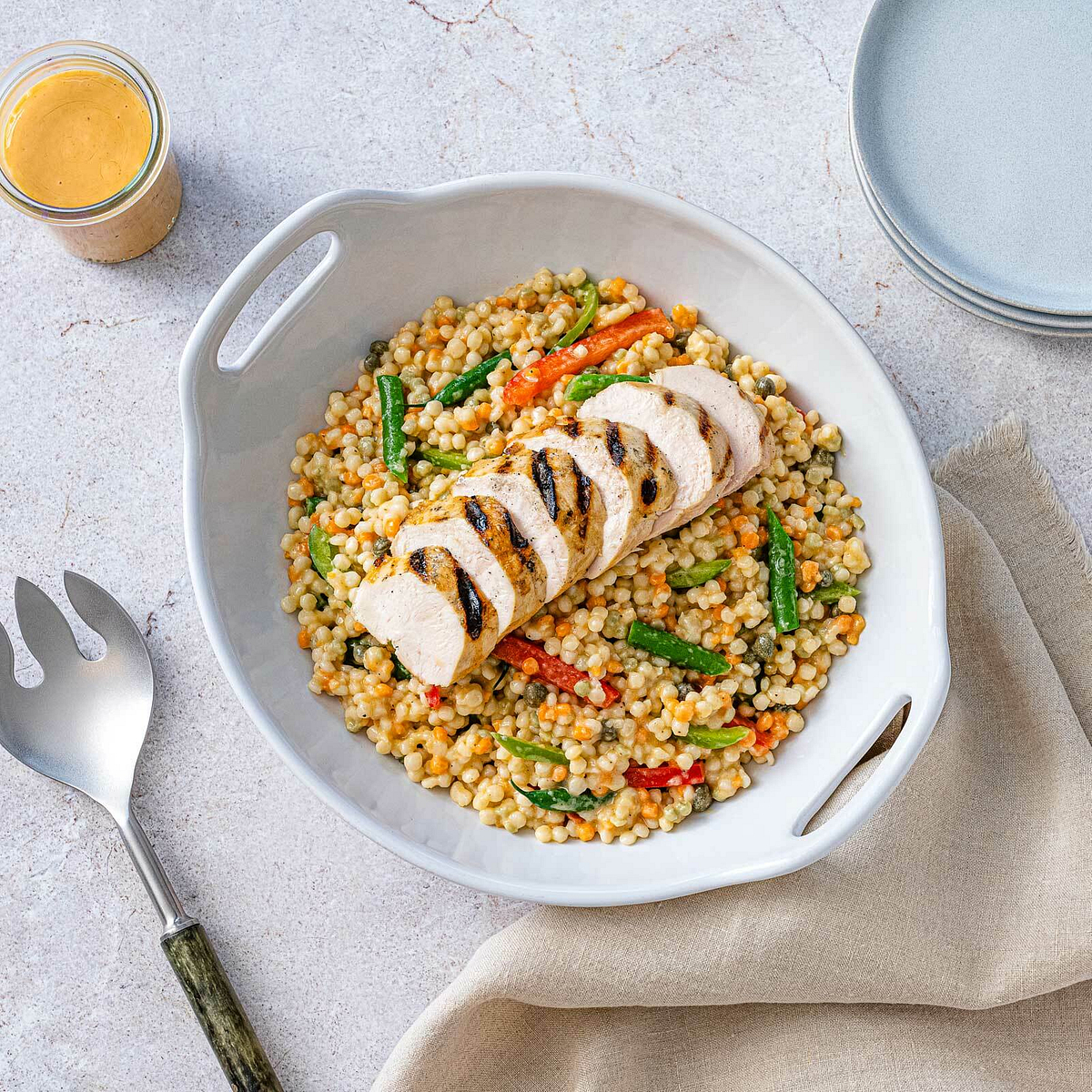Before leaping into a couscous-cooking frenzy, it’s important to learn all about this versatile ingredient. Beyond asking, “What is couscous?,” you’ll want to learn where it comes from, what makes it unique and which delicious couscous recipes you should try!
A neutral ingredient that can be used in countless ways, couscous is popular around the world. Much like rice, noodles and quinoa, it’s a staple that can be served as a side, a main, or an integral element in soups, stews, salads and more.
Available in several varieties, it’s also not a one-size-fits-all ingredient, offering intrigue to curious cooks keen to step out of their comfort zones.
So, what is couscous? It’s an ingredient you’ll want to invite to every meal once you discover everything it has to offer!
What is Couscous?
If you’ve ever wondered, “What is couscous?,” you’re in the right place! Couscous is a type of pasta made from semolina flour. Though it resembles a grain or a seed, couscous is not a crop.
A staple that originated in North Africa, couscous is also common in the Mediterranean and Middle East. Today, couscous is enjoyed in a variety of dishes around the globe.
What Is Couscous Made Of?
Traditionally made by hand, couscous is now often mass-produced from a mixture of semolina flour and water that is dried and then packaged. Semolina flour is a coarsely-ground type of durum wheat. It is generally used to make various types of pasta and puddings. All types of couscous are made from semolina flour.
Is Couscous a Grain or Pasta?
Couscous, in all of its varieties, is technically a pasta. Much like orzo pasta, it is often thought of as a type of rice, however, it is not. While there are different varieties, when talking about “couscous” most people are referring to traditional Moroccan couscous. This is a small, bead-shaped type of pasta made with 100% enriched durum semolina wheat.
Where Is Couscous From?
The most common, and smallest, type of couscous originated in North Africa. Other types, including pearl (or Israeli) couscous and Lebanese couscous are from elsewhere. Pearl couscous is slightly bigger than Moroccan couscous, and Lebanese couscous is the largest style. Despite the difference in size, all types of couscous are made from semolina flour.
Lamb Shanks Over a Bed of Moroccan Couscous
Couscous Nutrition
Couscous is a carbohydrate-rich food with 7 grams of protein and 4 grams of fiber per serving. There are slight nutritional differences between some types of couscous, though these are marginal. But is couscous healthy? That greatly depends on how it’s cooked—simply steamed vs. toasted with oil or butter—and on which other ingredients and sauces it is paired with. These have the most impact on its nutritional value.
Is Couscous Gluten-Free?
Whether you’re avoiding gluten due to celiac disease or mere preference, it’s important to note that couscous is not a gluten-free food. Unlike rice, which is naturally gluten-free, all types of couscous are made from wheat, so contain gluten. Couscous is best avoided by people with wheat allergies or sensitivities.
Couscous vs. Rice: Key Differences
Though they may be similar in size, when comparing couscous vs. rice you’ll discover that’s about all these two foods have in common.
- Texture – When steamed or boiled (as is common with pearl couscous), couscous and rice have a similar tender, fluffy, comforting texture. However, couscous (especially pearl couscous), tends to be a little chewier than rice, with more bite.
- Cooking time – Though cooking time varies between different types of rice and couscous, none are very time-consuming to make. While pearl couscous takes 8-10 minutes to boil, classic Moroccan couscous steams in just 5 minutes, making it the most time-efficient option.
- Flavor – Due to their naturally neutral nature, both rice and couscous are great partners for a range of bold, bright flavors. Similar to rice, couscous can be seasoned from the get-to by being cooked with chicken broth, lemon juice, herbs or spices. Cooked couscous can be combined with any number of vibrant ingredients. When toasted, couscous takes on a nuttier flavor than when simply steamed or boiled.
- Nutrition – When comparing the nutritional value of rice and couscous, it’s important to compare equivalent products. Nutritionally speaking, classic couscous is similar to white rice, though it tends to have slightly more protein and fiber. Couscous is also a source of iron, potassium and calcium. Most whole-grain options, such as couscous made from whole wheat durum flour and brown rice, tend to be higher in protein, fiber and minerals than their white counterparts.
Types of Couscous
Not all couscous is created equal! Learn what sets each type apart.
Moroccan Couscous
A classic style, Moroccan couscous has been around for centuries, it’s history having been traced back to 11th-century Berbers living in North Africa. Light and fluffy, this tiny type of pasta can be flavored with vegetables or spices before it is dried. Often called “instant” couscous, this variety cooks in minutes.
RiceSelect® Couscous: Made from quality 100% enriched durum semolina wheat.
RiceSelect® Tri-Color Couscous: A trifecta combination of traditional couscous and two varieties flavored with captivating hints of tomato and spinach.
RiceSelect® Organic Whole Wheat Couscous: This whole wheat variety of Moroccan couscous is also organically produced. Certified Organic by USDA.
Israeli Pearl Couscous
Larger than Moroccan couscous, pearl couscous is often toasted in hot oil before being boiled in salted water. Thanks to its nutty flavor and slight chew, pearl couscous shines in soups, salads and when paired with hearty sauces and stews.
RiceSelect® Pearl Couscous: Larger than Moroccan couscous, it’s made from the highest quality semolina wheat and quite easy to prepare.
RiceSelect® Tri-Color Pearl Couscous: Made with classic pearl couscous combined with flavored subtle hints of tomato and spinach.
RiceSelect® Pearl Couscous with Turmeric: Flavored with beneficial turmeric, this pearl couscous packs a superfood punch with more protein, fiber, calcium, iron and potassium in every serving.
RiceSelect® Organic Pearl Couscous: All of the same benefits of traditional pearl couscous but organically produced. Certified Organic by USDA.
RiceSelect® Organic Tri-Color Pearl Couscous: All of the same benefits of traditional tri-color pearl couscous but organically produced. Certified Organic by USDA.
Lebanese Couscous (Moghrabieh Couscous)
Bigger than pearl couscous, Lebanese couscous is the largest type available. The word “moghrabieh” refers to this type of couscous as well as a popular stew it is used to make. Lebanese couscous is known for its chewy bite.
Couscous Benefits: Why It Deserves a Spot in Your Pantry
Couscous benefits go above and beyond its delicious taste! Consumed as part of a recommended daily diet, couscous is a delicious alternative to rice, quinoa, bread, and more. Reach for whole-grain varieties for additional benefits.
Beyond its nutritional value, couscous is a boon to cooks who are short on time. Some varieties, such as RiceSelect® Couscous, are ready in just minutes, and don’t require any fancy equipment or techniques to master. Though it takes a couple of extra minutes to prep, pearl couscous is as simple to make as boiling water.
Best of all, couscous can enhance any type of dish! Delicious in salads and soups, it can also be a subtle side dish or give satisfying mains the added oomph they need.
How to Cook Couscous (Plus Easy Flavor Ideas)
Couscous is the type of pantry all-star you’ll reach for on busy days, lazy days, days when you’re too hungry to wait and days when other dishes are grabbing all of your attention!
Whichever type of couscous you’re making, infuse every morsel with flavor by cooking it in broth or water flavored with fruit juice, herbs or spices. It’s also important to pay attention to the correct water-to-couscous ratio to avoid an under- or overcooked final dish.
How to Cook Moroccan Couscous
To cook RiceSelect® Couscous, you need a ratio of 1:1 water to couscous. For 4 cups of cooked couscous, bring 1 cup of water to a boil. Season with 1/4 teaspoon of salt and 1 teaspoon of butter or olive oil. Stir in 1 cup of couscous, remove from heat and cover. Let stand for 5 minutes, then fluff with a fork and serve.
How to Cook Pearl Couscous
To cook RiceSelect® Pearl Couscous, aim for a water-to-couscous ratio of 1 1/2: 1. For 2 cups of cooked couscous, bring 1 1/2 cups of water to a boil. Season with 1/2 teaspoon of salt and 1 teaspoon of butter or olive oil. Stir in 1 cup of pearl couscous, cover with lid and reduce heat to low. Cook for 8-10 minutes, stirring occasionally. Drain and serve.
What to Eat with Couscous: Our Favorite Couscous Recipes
A kitchen go-to for centuries, it’s no wonder that couscous plays nicely with a world of flavors and ingredients! Explore the possibilities with these recipes, and more.
Breakfast Couscous with Orange and Dates
A dish that proves couscous’ versatility, this bright breakfast bowl is welcome at any hour of the day! With fresh fruit, dates, Greek yogurt and spice-scented RiceSelect® Couscous, it’s a multi-layered meal with surprise in every bite.
Savory Beef Stew with Roasted Vegetables
Focus on the stewed beef and roast vegetables in this warming dish, knowing that the couscous will (almost!) take care of itself. Hearty and rich, seasoned with garlic and thyme, this crowd-pleasing stew is bound to become a favorite.
Garlic Lemon Couscous Cakes
Zesty and bright, couscous becomes a crowd-pleasing finger food in this simple dish. Served as a starter, a main or a party snack, these crisp and tender cakes always satisfy.
Green Goddess Pearl Couscous Salad Recipe
Dressed in shades of green, RiceSelect® Pearl Couscous becomes a colorful, flavorful complete meal. A summertime staple, this dish is creamy and fresh, with avocado, fennel, herbs, feta and a punchy dose of dressing.
Garden Veggie Pearl Couscous
Pasta salad goes Mediterranean in this light, lively side. Serve this at potlucks or barbecues, alongside grilled chicken, fish or beef, as soon as warm weather hits.
Pearl Couscous Salad with Grilled Chicken
Shot through with tomato and spinach, RiceSelect® Tri-Color Couscous is colorful, flavorful and a must-have ingredient on your dinner table. Try it in this weeknight-friendly salad, with grilled chicken, crisp green beans and an attention-grabbing, Tabasco-laced dressing.
Vanilla Bean Saffron Pearl Couscous Pudding
As simple as rice pudding, this unique dessert is sure to turn heads! Silky and rich, with vanilla, saffron and heavy cream, this simple sweet also comes together in just 15 minutes.
Where to Buy Couscous?
Easy to find, RiceSelect® couscous products can be found alongside rice, pasta and grains at most major grocery stores. Online, visit Amazon and Instacart.

